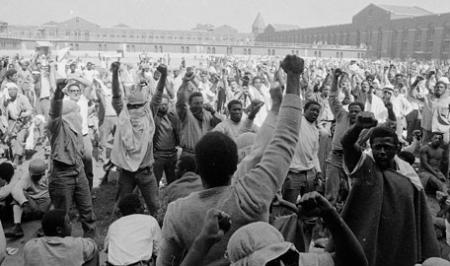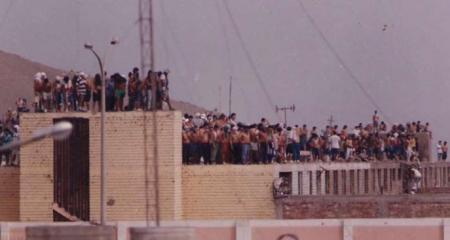I had the privilege this week of spending some time with Dr. Gordon Rohlehr, the esteemed Caribbean scholar, and it is from him that I take the title for this week’s blog. Rohlehr explained that any meaningful definition of community must take into account layers of power in society and include not merely the downtrodden, but those whose struggles and humanity often fall below the collective radar, people whose imposed marginality marks them as a class ‘beneath the underdog’. The brilliant jazz musician and civil rights activist Charles Mingus used the phrase as the title of his autobiography. The life works of both Mingus and Rohlehr tap into the better parts of our collective humanity. They remind us to hear the voice of the marginal and submerged, to look beneath stereotype, poverty, racism, and the shadows cast by power to recognize the music, beauty and expressive power of people and communities not always deemed worthy of society’s attention.
There is perhaps no starker example of the importance of this lesson than the peaceful hunger strike prisoners locked up at the supermax Pelican Bay State Prison are launching this Friday, July 1st to protest the inhumane policies of the California Department of Corrections and Rehabilitation. Many of these prisoners suffer extreme forms of cruelty deprivation and torture. They are seeking to reassert their humanity and to question the racism and poverty that shape policing policies and carceral conditions across the United States. There is a Prison Hunger Strike Solidarity website that should be seen by everybody who wants to understand the underbelly of American society and the violence, inequality and oppression fostered by the relentless attack on the most vulnerable among us. Associated Press (Attica Rebellion 1971, reproduced on the Prison Hunger Strike Solidarity Website)
Associated Press (Attica Rebellion 1971, reproduced on the Prison Hunger Strike Solidarity Website)
I bring this up here not only to raise awareness about this bold reassertion of prisoners’ civil and human rights, but also to point out that one terrible consequence of the so-called war on drugs has been the death and disappearance of many people into the prison-industrial complex. The U.S. incarcerates more of its own citizens than any other country in the world, and unfortunately, through the ‘war on drugs’ has exported this counter-productive and destructive model, particularly into Latin America. A recent report, entitled Systems Overload, produced by the Transnational Institute (TNI) and the Washington Office on Latin America (WOLA) documents how over the past two decades drug war policies promoted by the United States in Argentina, Bolivia, Brazil, Colombia, Ecuador, Mexico, Peru and Uruguay have led to extremely punitive drug laws that fall disproportionately on the poor and dispossessed, resulting in among other things excessive levels of incarceration and prison over-crowding.  Instituto de Defensa Legal IDL, Lima, Peru (reproduced in “Systems Overload”) They join many others, including the Global Commission on Drug Policy, members of the medical profession, and former President Jimmy Carter, to name only a few prominent recent attempts at intervention, in calling for a review and revision of these policies to ameliorate the rampant human rights abuses they foster, while failing by almost any measure to protect public health, reduce drug trafficking, or undermine the power and influence of the drug kingpins who profit from it. In conjunction with Systems Overload WOLA produced a series of videos that remind us of the “human face” of drugs and prisons in Latin America.
Instituto de Defensa Legal IDL, Lima, Peru (reproduced in “Systems Overload”) They join many others, including the Global Commission on Drug Policy, members of the medical profession, and former President Jimmy Carter, to name only a few prominent recent attempts at intervention, in calling for a review and revision of these policies to ameliorate the rampant human rights abuses they foster, while failing by almost any measure to protect public health, reduce drug trafficking, or undermine the power and influence of the drug kingpins who profit from it. In conjunction with Systems Overload WOLA produced a series of videos that remind us of the “human face” of drugs and prisons in Latin America.
The prisoners at Pelican Bay are seeking to do the same, to remind us that if we fail to listen to those beneath the underdog, we all are complicit in the ongoing degradation of our collective humanity.

